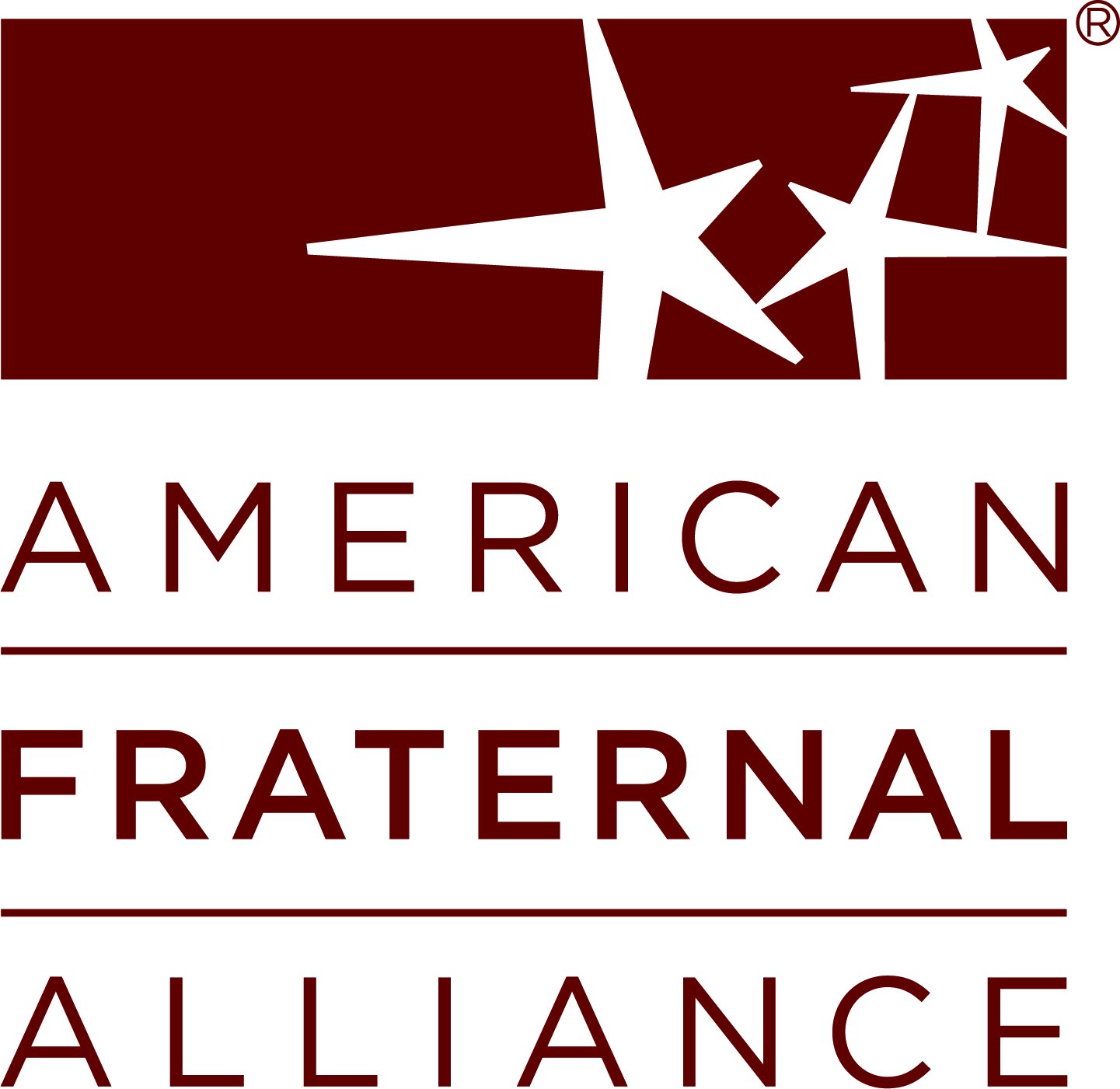Over five events in 2025, the Alliance’s Fraternal Career Development Series will support and inspire a select group of up-and-coming fraternal executives through in-person trainings and virtual discussion groups.
IMPORTANT DATES
MARCH 12–13, 2025
CHICAGO
APRIL 8, 2025
VIRTUAL
JUNE 13, 2025
VIRTUAL
JULY 22–24, 2025
PITTSBURGH
OCTOBER 7, 2025
VIRTUAL
REGISTRATION
Registration Fee:
$1,049 per student
THANK YOU TO OUR SPONSOR
Session Schedule
March 12–13, 2025 | Session #1
IN PERSON | Chicago, Illinois
March 12: 2:00 – 5:00 p.m. Central
March 13: 8:30 a.m. – 1:30 p.m. Central
Leadership Roadmap, Being an Emotionally Intelligent Leader, & Change Management Pt. 1 - The Architecture of Change
April 8, 2025 | Practicum #1
VIRTUAL
11:00 a.m. – 12:00 p.m. Central
Roundtable call diving into the application of concepts at the home office.
June 13, 2025 | Practicum #2
VIRTUAL
11:00 a.m. – 12:00 p.m. Central
Roundtable call diving into the application of concepts at the home office.
July 22–24, 2025 | Session #2
IN PERSON | Pittsburgh, PA
July 22: 2:00 – 5:00 p.m. Eastern
July 23: 8:30 a.m. – 4:30 p.m. Eastern
July 24: 8:30 a.m. – 1:30 p.m. Eastern
Change Management Pt. 2 – Problem Solving, Managing You is Killing Me, and Visionary Leadership – Inspiring Action
October 7, 2025 | Practicum #3
VIRTUAL
11:00 a.m. – 12:00 p.m. Central
Roundtable call diving into the application of concepts at the home office.
Session Descriptions
Leadership Roadmap
Welcome to the Fraternal Career Development Series! There are two core areas that any leader must learn how to manage – results and relationships. To make matters more complex, we are all managers and contributors at the same time. Making the transition from producing work to managing people (while still producing work) requires a priority-shifting tap dance. During this series overview, we will learn about the four leadership cornerstones that make that dance more manageable - Building Relationships, Assimilating Information, Providing Direction, and Creating a Vision. A history on the fraternal system and an overview of the unique structure of fraternal benefit societies will also be provided.
Learning Objectives:
Discover the four phases of effectively managing people and production and identify how each phase is geared to resolve a specific leadership challenge.
Learn how to develop trust as a core element of any successful work team and identify the ways trust can be unintentionally destroyed.
Explore common challenges that crop up for any supervisor related to managing results and leading people.
Being an Emotionally Intelligent Leader
Being “emotionally intelligent” is a critical success factor for any stress-tolerant professional who seeks to effectively manage results as well as relationships. Learn how to handle difficult exchanges by controlling your own reactions and guiding others toward more effective interactions. In this session, we will explore the four cornerstones of Emotional Intelligence which are Self-Awareness, Self-Management, Social Awareness, and Relationship Management. Participants will have the opportunity to take the Emotionally Intelligent Instrument before (or during) the session.
Learning Objectives:
Build Self-Awareness by recognizing their own triggers for stress and identify the source as internal (self-imposed) or external (other-imposed).
Engage in proactive Self-Management by replacing impulse-driven, counter-productive behaviors with well-reasoned responses.
Improve Social-Awareness by learning to read (and detach from) the responses of others during any difficult interaction.
Change Management: Deal with It! – Handling Constant Change
The ability to effectively manage change is often identified as a core success competency in a fast-changing business environment. When employees get stuck and appear resistant to embracing new directions, it is rarely a simple issue of stubborn refusal. A far more likely reason for not moving forward is a lack of basic problem-solving skills. Any new vision or strategy will also create a new set of problems that demand attention. Most of us are comfortable solving the routine problems. New and unfamiliar problems demand fresh thinking and a creative approach. During this idea lab, attendees will explore the link between successfully adapting to the change cycle and developing creative problem-solving strategies.
Learning Objectives:
Learn how embracing change and the ability to solve unexpected problems with a minimum of stress and drama are critically linked.
Identify the two primary types of problems and the main factors that impede resolution for each.
Explore practical methods to combat “we’ve always done it this way” thinking and apply new approaches to address professional (and personal) challenges.
Managing You is Killing Me!
One bad apple in a work group can drag down production by as much as 30-40%. This finding by researcher William Phelps and reported by the Wall Street Journal highlights a serious leadership challenge facing today’s manager – handling employees where performance falls unacceptably short of potential. People aren’t bad but performance and conduct can be! Having the skill to correct destructive behavior is critical - making sure we set the right conditions so that problems don’t happen in the first place is an absolute survival skill. This session in the series will cover everything you will need to know to set expectations, manage results, and address negative behavior.
Learning Objectives:
Learn how your communication style might be leading you to macro or micro-manage.
Identify the four hidden reasons behind non-performance and how to avoid them.
Learn to address bad attitudes by identifying behavior and providing corrective feedback that reduces defensiveness and focuses on limit setting.
Visionary Leadership – Inspiring Action
Great leadership and hard work will only take you so far. You need a vision to galvanize a team, unleash energy, and inspire collective, coordinated action. A great vision provides a clear, specific, and compelling picture of what future success will look like, including those few key metrics that define success. It defines a target and clarifies the positive impact to employees, customers, and stakeholders. During this session, we will also explore how teams translate vision into actionable strategy to set themselves apart and deliver exceptional results.
Learning Objectives:
Explore creating a professional (and personal) vision that can lead to successful transformation.
Learn the four characteristics of a vision that can inspire higher levels of production and performance.
Understand how strategic planning connects to visioning and learn how to avoid the two most common types of failure for any work team.
Program Information
ABOUT THE SPEAKER
Tom Meier is a human resource consultant with more than 20 years experience in the areas of organizational and employee development. His areas of expertise include career management, leadership development, personality assessment, and organizational change. Tom’s client service background has ranged from workshop facilitation for large groups to providing individualized coaching services for executive, management, and staff level employees.
In addition to graduating from Indiana University, Tom has received the Marshall Goldsmith Executive Coaching certification and is a qualified administer of the Strong Interest Inventory, the Myers-Briggs Type Indicator (MBTI) and Lominger suite of 360 feedback and development products.
Industries served include; insurance, banking, healthcare, manufacturing, service, academia, and not-for-profits. Clients Tom has partnered with include; JP Morgan Chase, Farm Bureau Insurance, Lincoln National Insurance, Swiss ReInsurance, Trimedx Healthcare Equipment Services, Trader.com, Butler University, Eli Lilly and Company, Hewlett Packard, and Sallie Mae.
TOM MEIER, Equis Consulting




